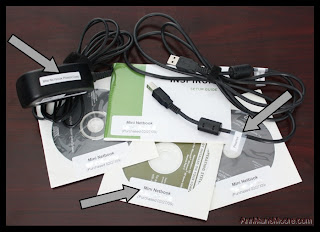Use small containers, such as old check boxes, to separate and store office supplies in a drawer or on a shelf.
Showing posts with label Office. Show all posts
Showing posts with label Office. Show all posts
Designate an "Inbox" for each family member
To make it easier to handle incoming mail and papers, create an "Inbox" for each family member. Once the incoming mail is brought inside your home, sort it by placing mail for each family member in the appropriate slot.
Do you have a System for managing your papers and incoming mail?
It's easy to get overwhelmed with incoming mail and papers. Do you have a system in place? Sometimes a system can be as simple as opening your mail near your recycle container so that junk mail is immediately recycled.
Why do we save extra pens and markers?
Why do we accumulate so many pens, most of which we dislike? Go through your pens and markers and keep only your favorite writing utensils. Then, think twice before accepting a "free" pen in the future.
Leave ample space in your Home Office drawers
Try not to overcrowd your drawers or shelves in your Home Office. If possible, leave plenty of space between items so you can see them and easily retrieve them. Reserve your drawer space for those items which you use most often.
Use Drawer Dividers in your Home Office
Using drawer dividers in your Home Office can help you stay organized. Place similar items in the same cubby. In this photo, large and small paper clips are placed in separate cubbies.
How many do you need?
If you have duplicate items, ask yourself how many you need. Sometimes it's convenient to store items in multiple locations, such as in your home office and in a drawer in your kitchen.
Group similar home office items together
Group similar items together, such as "tape and adhesives". Then, try to store these similar items together.
Relocate items that don't belong in your Home Office
When you're organizing your home office, you may find items that don't belong in this particular room. Set these items aside and relocate them to another room or area once you're finished. In this photo, you'll notice batteries mixed in with other office-related items.
Sort your Home Office Items
When sorting items in your home office, place similar items together, such as staple accessories in one area and paperclips in another. This makes it easier to see what you have.
Focus on one area at a time in your Home Office
Organizing too much at once can be overwhelming, especially in your home office. Focus on one area, one drawer, one shelf, or one cabinet at a time.
Easily Identify Your Printer Paper
Using a paper tray is a simple way to organize various types of paper and label sheets. To quickly identify your printer paper, lightly mark the edge with a pen. This mark should not be visible on each individual piece of paper.
Use a Vase to Store Pens & Pencils
Use decorative vases or jars to store pens, pencils, markers, and scissors on top of your desk. This makes it easy to access the items you use often while adding some style to your desk.
Organize Business Receipts
Organizing systems can be as simple as devoting one desk drawer for business expense receipts. Drop receipts in the drawer as you receive them and then process or submit several receipts at a time.
Label Electronic Cords
Labeling cords only takes a few minutes and can save a ton of time and frustration when you remove or add a new device. And, the cords are less likely to get mixed up in a box with other unidentified cords. To label the cords, you don’t even have to use a fancy label maker. A dark marker and bright electrical tape works too!
Subscribe to:
Posts (Atom)

















